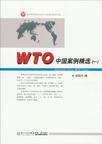WTO中国案例精选
2012-10
厦门大学出版社
杨国华 编
244
389000
案例在法学教育中的作用是公认的。有了案例,法律规则就“活”了起来——从抽象的概念、冷冰冰的条文,变成了社会中一个个活生生的事例。通过对这些事例的研究,学生们就开始看到了法律的“用处”,进而对条文的含义和理念有了清晰、深刻的认识,同时培养了独特的法律思维。这样,当他们走向社会、遇到一件件具体的事情时,脑海里就会浮现一个个成案及其背后所体现的法律原则,并且迅速将之运用于解决眼前的问题。因此,在法学教育中,应当大量使用案例教学,使得学生的法律知识和法律思维得到反复强化和巩固。 然而,选择好的案例何其难也!国内法院判决大多过于简单,对法律条文为何适用于本案事实所言甚少,仿佛将事实查明后,就有现成的、毋庸置疑的条文等着。英美法传统的法院判决也许有比较充分的说理、论证过程,但这些案件的事实离我们实在太遥远,永远给人一种“隔”的感觉。法律是“本土”的,离开了我们自己生活的法律,我们永远无法真正地理解,更不用说将其准确地运用于我们自己的生活。不仅如此,无论是国内判决还是国外判决,我们又从何处获得呢?是的,有人会出版“案例精选”,但那些是我们所需要的案例吗?那些案例能够完全反映我们所要学习的法律制度吗? 就在这个时候,我们发现了WTO案例。WTO成立15年来,已经有了400多个案件、200多份专家组和上诉机构裁决,几乎覆盖了WTO的所有协议。这些裁决的重大特色,是对“法律条文为何适用于本案事实”有详尽的论述。为了确定一个协议条款的含义,专家组和上诉机构往往会从词典中查找其“通常含义”,从该条款的前后左右甚至其他协议对照“上下文”,从该条款所在协议的前言和整体明确“宗旨和目的”。在此过程中,常常会参照大量的先例。这些先例为条款的理解提供了多样的思路。在初步确定了条款的含义后,专家组和上诉机构还会参考“补充资料”,例如协议谈判时的文件,以印证其理解的准确性。然后,他们会拿着“条款的含义”这个“放大镜”,仔细查看案件的事实,一点点确定两者是否相符。经过这样的法律论证、法律推理,读者会对“法律”及其“法律”适用于事实的过程,有一个清晰的了解。阅读和研究这样的案例,能够培养法律解释的能力,更能够锻炼法律适用的本领。此外,这些案例的裁决在WTO官方网站上可以全部免费下载,而涉及中国的案例更会让学生增加一种“亲切感”——中国在国际组织做为“原告”或“被告”的案件,不仅事关重大,而且饶有趣味。
法律教学应当使用WTO案例,因为研读这样的法律分析,学生必定会得到很好的法律训练。此外,对于中国是当事方的案件,裁决涉及中国的贸易法律和政策以及中国的经济利益,因此使用这些案件教学是饶有趣味的。对于中国并非当事方的案件,由于它们涉及国民待遇、最惠国待遇和取消数量限制等重要的国际贸易规则,覆盖了货物贸易、服务贸易和知识产权等主要的国际贸易领域,而中国作为一个贸易大国,有短期或长期的利益,因此使用这些案件教学,不会让学生有“事不关己”的“陌生感”。而对于研究者,研究这些案件所涉及的国际规则和中国利益,提出对策建议,对中国法律和政策的制定以及“全球治理”的参与,都有非常重要的意义。杨国华编著的《WTO中国案例精选(1)》即精选了这些案例。
杨国华,商务部条约法律司副司长,北京大学法学博士,西南政法大学WTO案例教学研究中心名誉主任,西南政法大学兼职教授。曾任中国驻美大使馆知识产权官员,并参与中国加入WT0多双边谈判和外经贸易部WT0法律领导小组办公室工作,负责与中国有关的WTO争端解决事务,还曾负责外国对华反倾销的应诉、中外知识产权谈判与合作。主要著作有《WTO争端解决程序详解》、《中美知识产权问题概况》、《美国贸易法301条款研究》、《中美经贸关系中的法律问题》、《中国加,NWTO法律问题专论》、《WT0美国钢铁保障措施案研究》、《中国与WTO争端解决机制专题研究》、WTO
Dispute SettlementUndetanding:A Detailed
Interpretation、《中美知识产权问题概观》等。
案件一
美国钢铁保障措施案
案件二
中国汽车零部件案
案件三
中国知识产权案
案件四
中国出版物案
中国参与WTO案件统计
7.514 Therefore, the standard of compliance with Article 61 is the minimum internationally agreed standard set out in that Article. The minimum standard in Article 61 does not defer to China's domestic practice on the definition of criminal liability and sanctions for other wrongful acts in areas not subject to international obligations under the TRIPS Agreement, unless it so states. For example, the second sentence refers to "crimes of a corresponding gravity" which might refer to domestic practice in other areas. However, the first sentence of Article 61 does not make any such reference. 7.515 For the above reasons, the Panel confirms its view at paragraphs 0 to 0 above that the first sentence of Article 61 of the TRIPS Agreement imposes an obligation. The Panel willow turn to the terms used in that provision, read in context and in light of the object and purpose of the Agreement, to determine the scope and content of that obligation. (Iv)Scope of the Obligation 7.516 The terms of the obligation in the first sentence of Article 61 of the TRIPS Agreement are that Members shall "provide for criminal procedures and penalties to be applied". That obligation applies to “willful trademark counterfeiting or copyright piracy on commercial scale". Within that scope, there are no exceptions. The obligation applies to all acts of willful trademark counterfeiting or copyright piracy on a commercial scale. 7.517 The Panel recalls its conclusion at paragraph 0 above that, in China, acts of trademark and copyright infringement falling below the applicable thresholds are not subject to criminal procedures and penalties. The issue that arises is whether any of those acts of infringement constitute "willful trademark counterfeiting or copyright piracy on a commercial scale" within the meaning of the first sentence of Article 61. This requires the Panel to consider the interpretation of that phrase. 7.518 The Panel notes that the first sentence of Article 61 contains no fewer than four limitations on the obligation that it sets forth. These define the scope of the relevant obligation and are not exceptions. The first limitation is that the obligation applies to trademarks and copyright rather than to all intellectual property rights covered by the TRIPS Agreement. The fourth sentence of Article 61 gives Members the option to criminalize other infringements of intellectual property rights, in particular where they are committed willfully and on a commercial scale. Despite the potential gravity of such infringements, Article 61 creates no obligation to criminalize them. ……

很好,好新,可以读读看